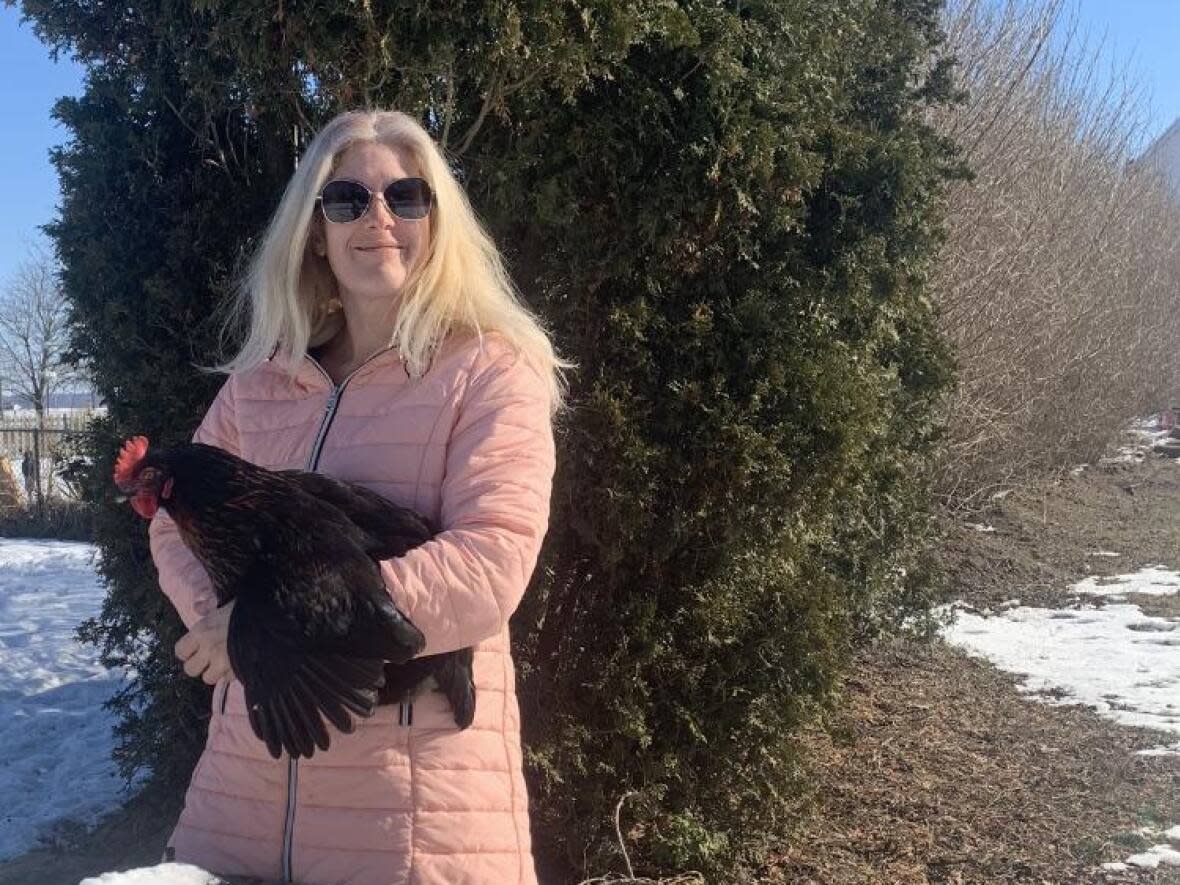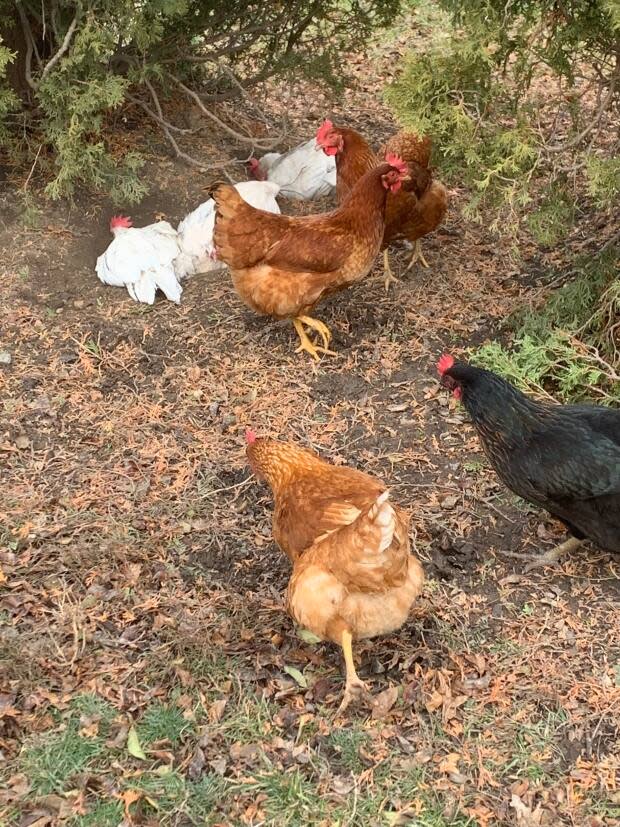Chatham-Kent to consider changing chicken bylaw

Charlotte Bordenuk has kept chickens on her rural property just outside of Chatham, Ont., for over a decade.
Under the municipality's bylaw, her chickens are legal — part of her property is zoned as agricultural land, which means she can keep chickens, pheasants, quail and other animals.
But Bordenuk says she was recently issued $240 fine because a neighbour from down the street spotted some of her chickens wandering onto the church property next door.
Despite the chickens living on her property legally and the church next door consenting to the odd clucking visitor, Bordenuk said she has to fight the charge.
"I have to go to court over chickens," Bordenuk said.
According to the worker who issued the fine, Bordenuk may have to wait up to six months for the charge to go to court, leaving her frustrated with the confusion over the bylaw and her with neighbour.
"If a crow goes in her yard, [are we] just gonna call the calvary? We live in the country," she said.
South Kent Ward 2 Coun. Anthony Ceccacci says he is putting a motion forward at Chatham-Kent's Monday council meeting to address chicken ownership in the region.
The motion is for the municipality to look into the pros and cons of privately owned chickens. Ceccacci is asking council to conduct a survey and hear what the community thinks about urban and rural chicken ownership in Chatham-Kent.
He is also asking for a report on what surrounding municipalities have done with urban chicken bylaws.
Rural residents included in chicken-ban
Ceccacci said that many rural residents don't know they aren't allowed to own chickens without agriculturally zoned land, which is part of why he is motioning to look into the bylaw.
"Some of the challenges that I hear as a councillor is that in some of these areas it doesn't make a whole lot of sense [to ban backyard chickens]," he said.

He said there are many residents that don't know they aren't allowed to have chickens on their rural property until the bylaw is enforced and they are fined or their animals are taken away.
"Some of these areas are very rural, but maybe they have a few houses on the road and they've had their hens for years if not decades, but now there's been a complaint," he said, adding it is important for the region's council to consider the bigger picture.
But the situation is more complicated for residents like Bordenuk, who live on a property that partially agriculturally zoned.
"I pay property taxes for agricultural [land]," she said.
"So I want money back if you're telling me I can't have anything on that property."
Residents support chicken urban and rural
Chatham-Kent resident Jane LaBute recently posted a petition in support of Ceccacci's motion on Change.org and as of publication has 916 signatures out of her 1,000 goal.
She told CBC News there are many benefits for Chatham-Kent residents keeping chickens.
She said hens produce eggs and eat food scraps, which lowers food waste, and their manure is a good fertilizer.
"And also there's, you know, the social benefits of animal keeping and it's a different kind of animal to look after. So not your average pet," she said.
But Ceccacci said there are concerns about allowing urban residents to own backyard chickens. Avian flu, noise, dirty coops and extra resources needed to monitor that chickens are being cared for are some of the concerns he brought up.
"I think it's important to not just pass the bylaw," he said.
"It's important to listen to everybody, to see the concerns and for public health to bring that information back to us."


